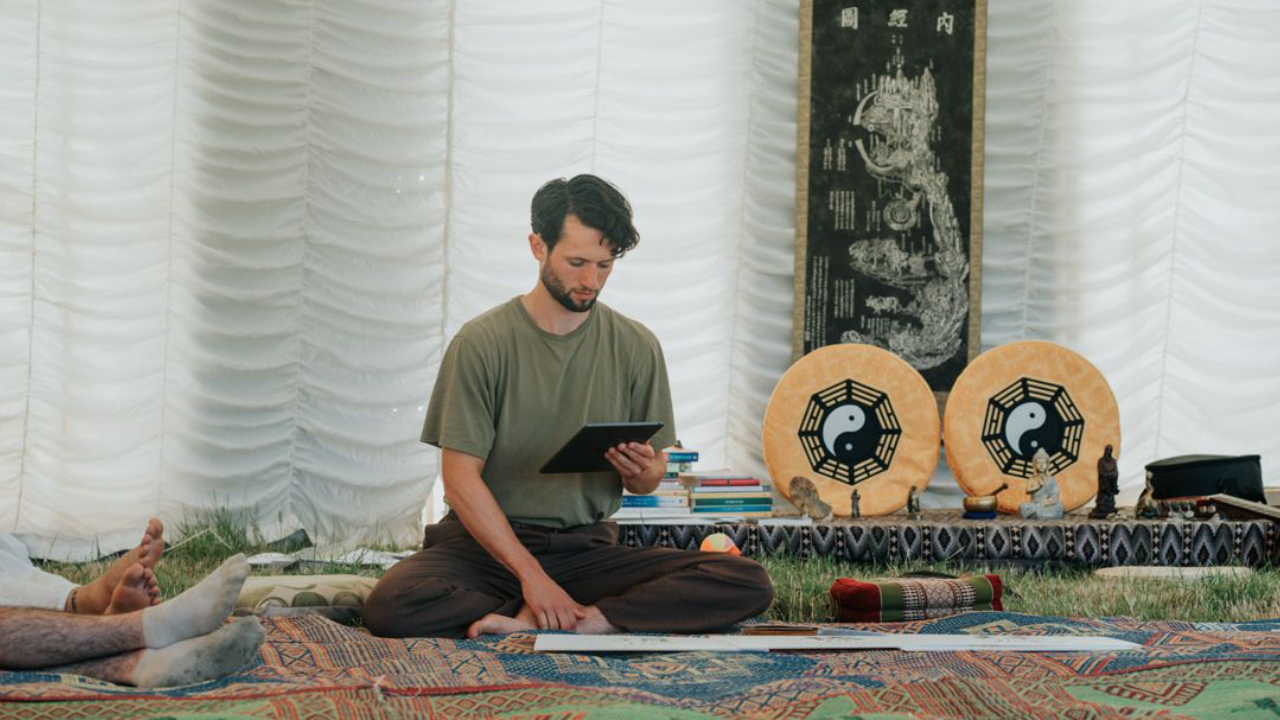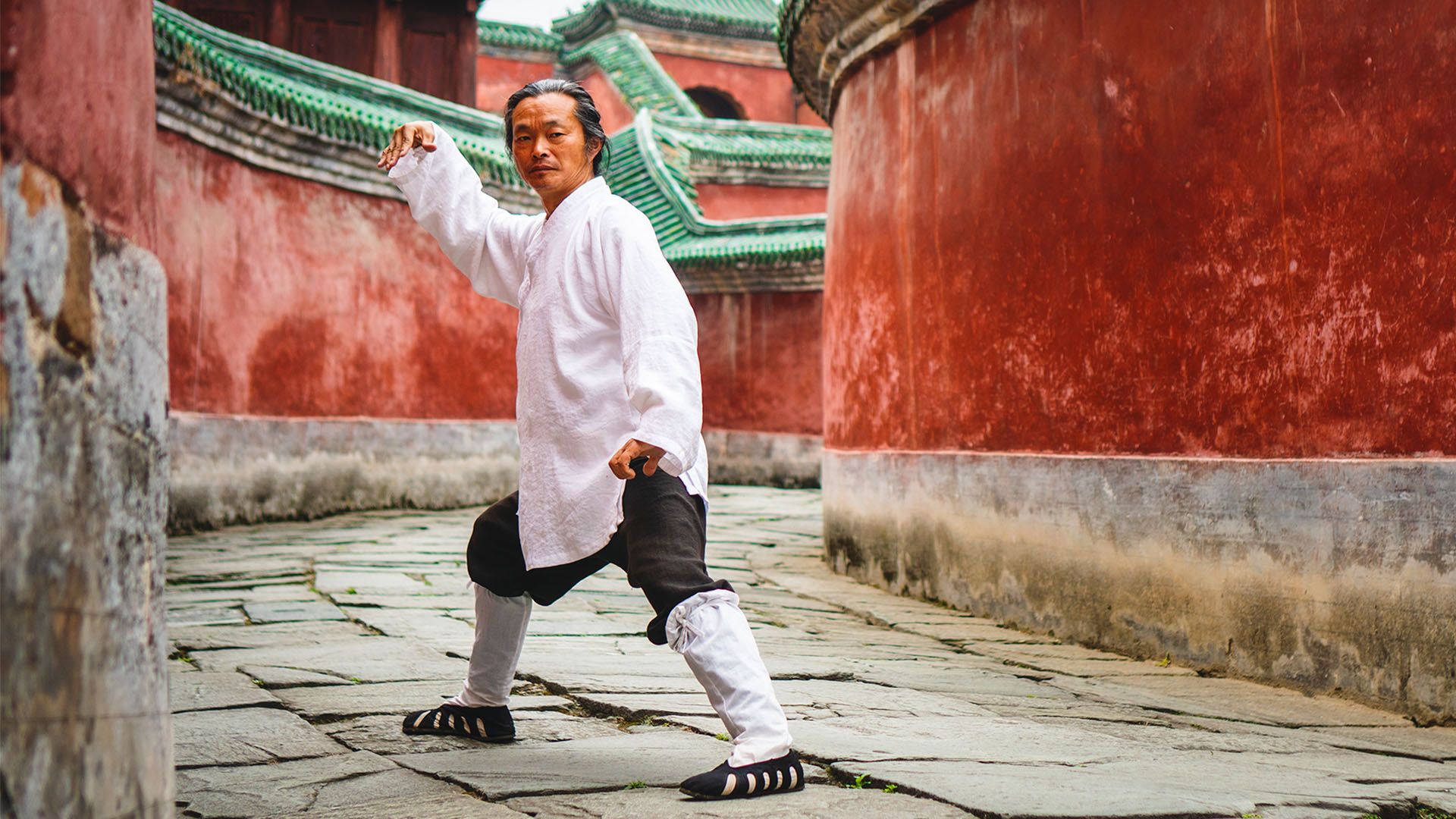Tai Chi for Stress Relief: Simple Moves to Ease Tension
Jul 07, 2024
Stress can severely impact mental and physical health. Studies have shown Tai Chi for stress relief has many benefits, including reducing anxiety and depressive symptoms. A randomized controlled trial of Tai Chi found significant improvements in stress relief and overall well-being. Research has highlighted the beneficial effects of Tai Chi on both mental and physical health.
Practicing Tai Chi for 12 weeks can lead to noticeable improvements. It provides a gentle, yet effective, form of exercise. Tai Chi places minimal stress on muscles and joints, making it suitable for older adults. This article offers a complete guide to simple Tai Chi moves that ease tension and enhance relaxation.
The Benefits of Tai Chi for Older Adults
Physical Health Benefits:
Tai Chi Chuan, a form of exercise, offers numerous health benefits for older adults. Regular practice of Tai Chi can lead to improved physical health by enhancing cardiovascular function and reducing symptoms of coronary heart disease.
This low-impact martial art strengthens muscles and increases flexibility, which helps older adults maintain mobility. A systematic review of various studies has shown that Tai Chi exercise is effective in improving balance, reducing the risk of falls, and enhancing overall physical fitness.
Additionally, Tai Chi practice helps manage chronic conditions like arthritis, contributing to better physical well-being.
Mental Health Benefits:
Practicing Tai Chi offers significant mental health benefits for older adults. The mindfulness and relaxation techniques in Tai Chi help reduce stress and anxiety symptoms. A randomized controlled trial showed that Tai Chi could effectively alleviate depressive symptoms and improve mood.
Incorporating Tai Chi into daily routines enhances sleep quality, leading to better overall health. The practice also supports cognitive function, helping older adults maintain mental sharpness and emotional stability.
The meditative aspects of Tai Chi foster a sense of calm and peace, contributing to improved mental health.
Social and Emotional Benefits:
Tai Chi classes provide a supportive environment for older adults to connect with others. Engaging in Tai Chi practice promotes social interaction, which helps reduce feelings of isolation and loneliness.
The community aspect of Tai Chi classes enhances emotional well-being by providing a sense of belonging. Older adults often experience increased confidence and self-esteem as they master Tai Chi techniques.
The practice also encourages a positive outlook on life by fostering a sense of accomplishment and purpose. These social and emotional benefits contribute significantly to the overall quality of life for older adults.
Tai Chi for Stress Relief
Tai Chi is highly effective for stress reduction. The gentle movements and breathing techniques involved in Tai Chi exercise promote relaxation and mindfulness. Practicing Tai Chi helps lower cortisol levels, thereby reducing stress and anxiety symptoms. A randomized clinical trial indicated that Tai Chi may significantly decrease stress in participants over 12 weeks. The mindfulness component of Tai Chi encourages a focus on the present moment, helping to alleviate stress.
Regular practice of Tai Chi contributes to improved sleep quality, which further reduces stress. Engaging in Tai Chi as a form of physical exercise not only relaxes the body but also calms the mind. Incorporating Tai Chi into daily routines can create a sanctuary from everyday stressors, providing a holistic approach to stress management.
Improving Balance with Tai Chi
Tai Chi is highly effective in improving balance among older adults. The slow, controlled movements of Tai Chi strengthen the muscles and enhance coordination. Regular practice of Tai Chi improves proprioception, the body's ability to sense its position in space. This is crucial for maintaining balance and preventing falls. Different styles of Tai Chi, such as Yang and Wu, offer various exercises specifically aimed at enhancing stability.
Health conditions that affect balance, like arthritis or stroke, can be managed better through consistent Tai Chi practice. The effectiveness of Tai Chi in improving balance has been supported by numerous studies, highlighting its importance in fall prevention programs for older adults.
Incorporating Tai Chi into Daily Life
Tai Chi is an ancient Chinese exercise that has many health benefits, including stress relief. Practicing Tai Chi for 12 weeks can significantly improve both physical and mental health. Regular Tai Chi sessions, such as two classes a week, provide moderate exercise without placing stress on muscles and joints.
The practice of Tai Chi is generally safe and can be adapted to suit individual needs. Minimal stress on muscles and joints makes Tai Chi an ideal choice for older adults. Incorporating Tai Chi into your routine enhances overall well-being and reduces symptoms of anxiety and mild depression.
Tips for Maintaining Consistency
- Set a Schedule: Dedicate specific days and times for Tai Chi practice to build a habit.
- Start Small: Begin with 10 minutes of Tai Chi and gradually increase the duration.
- Join a Group: Practicing with others, such as in a Tai Chi class, boosts motivation.
- Use Reminders: Set reminders on your phone to prompt you to practice regularly.
- Track Progress: Keep a journal to note improvements in mental and physical health.
- Stay Flexible: Adapt your practice to fit your schedule and energy levels.
- Seek Variety: Explore different styles of Tai Chi to keep your practice interesting.
- Stay Positive: Focus on the positive effects of Tai Chi on depressive symptoms.
- Consult Resources: Use online tutorials and resources to enhance your practice.
- Combine Activities: Pair Tai Chi with other moderate exercises for overall benefits.
Conclusion
Tai Chi is an ancient practice that helps manage stress and improve general health. Regular Tai Chi practice enhances physical and mental well-being, offering significant psychosocial benefits. Simple moves can provide substantial relief from tension and anxiety. Tai Chi for stress relief can be easily integrated into daily routines. Have you tried incorporating Tai Chi into your daily routine for stress relief?







